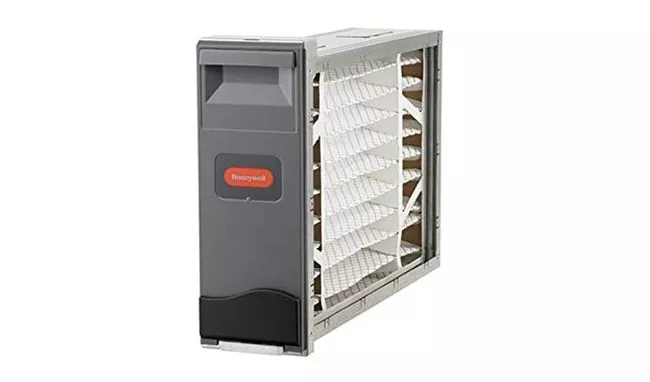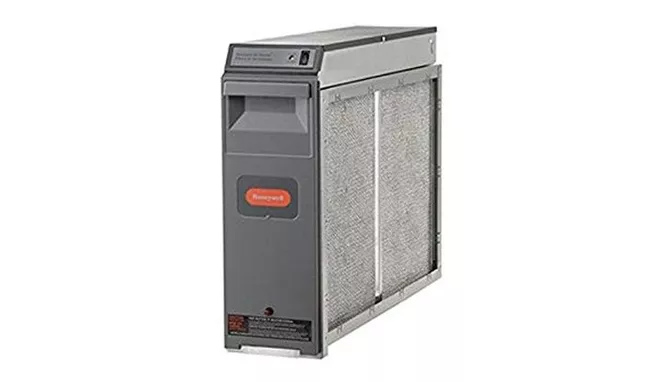Professional Air Filter Installations You Can Count On
- NATE-certified technicians
- 2-hour appointment windows
- 1-hour Installations
- 100% satisfaction guaranteed
NEW HVAC System Price Estimator - No Personal Info Required to Use. Click Here.
Call us at 503-538-1950 or schedule online to request an appointment for your air filter installation. Not sure which air filter is right for you? We'd be happy to share what makes each model unique, and which would be best for your home.
One of our immaculate white vans will arrive at your home within the 2-hour scheduling window you requested. The technician will be wearing a spotless company uniform and introduce himself at your door.
The vast majority of our air filter installations are completed in just one hour. After the installation is complete we run a series of tests to confirm your system is working perfectly.
We sincerely want to hear about your experience–good or bad. Four Season's installations are backed by a 100% satisfaction guarantee. So if you feel something could've been done better, don't hesitate to let us know.
Schedule Installation
The Honeywell F100 media filter system significantly improves air quality within a home. At 14 times more effective than a standard one-inch filter, it captures up to 96% of airborne particles passing through it.

The Honeywell F300 optimizes efficiency with airflow capturing up to 98% of particles that pass through it. It operates with all gas, oil and electric forced warm air furnaces and AC systems, and is available in four sizes to fit the vast majority of duct systems.
Here's our take on 100% guarantees: if you need more than one of them, you're just not doing it right.
Four Seasons only has one guarantee. And it's simple. We guarantee that if the service you received was not to your satisfaction for any reason, we will come back and make it right. No nonsense. No funny stuff. Just honest service at a fair price. Always.
Four Seasons air filter installations are backed by a 5-year parts warranty. You'll pay nothing for replacement parts for a full 5 years after we install your air filter.
Four Seasons air filter installations are backed by a 30-day labor warranty. You'll pay no labor costs for 30 days if we have to come out to make adjustments after your installation.
Long before we take our first service call in the morning, the team is already hard at work planning for the day ahead. By the time we get to your house, a service strategy is in place and ready to be executed by our veteran technicians.
Call us crazy, but when you invite a stranger into your home, they better make a great first impression. We hire kind people with warm smiles and great personal hygiene. We want you to feel so comfortable around our technicians, you'll want to invite them back!
Having choices is a good thing. Feeling pressured to make a choice that isn't right for you is not. Whether your service call involves an installation or a repair, we always give you options, but we never force you into one.
Over the years Four Seasons has created processes which save us a lot of money in operating costs. We then pass those savings immediately on to our customers. The result is service that's more affordable than other HVAC companies in the Portland area, without a loss to quality.
"...timely installation and service!"
“We did not have to give up ‘good value and quality’ in order to “buy local!” Ed & his staff have been very customer friendly, have provided timely installation and service. Many thanks!”
With 4.9 out of 5 stars on Google ⭐⭐⭐⭐⭐
Proudly Serving the Portland Metro Area & Beyond
Portland, Beaverton, Newberg, Clackamas, Canby, Gladstone, Lake Oswego, McMinnville, Oregon City, Forest Grove, Happy Valley, Sherwood, Tigard, Hillsboro, Tualatin, Keizer, Wilsonville, Milwaukie, Aloha & More